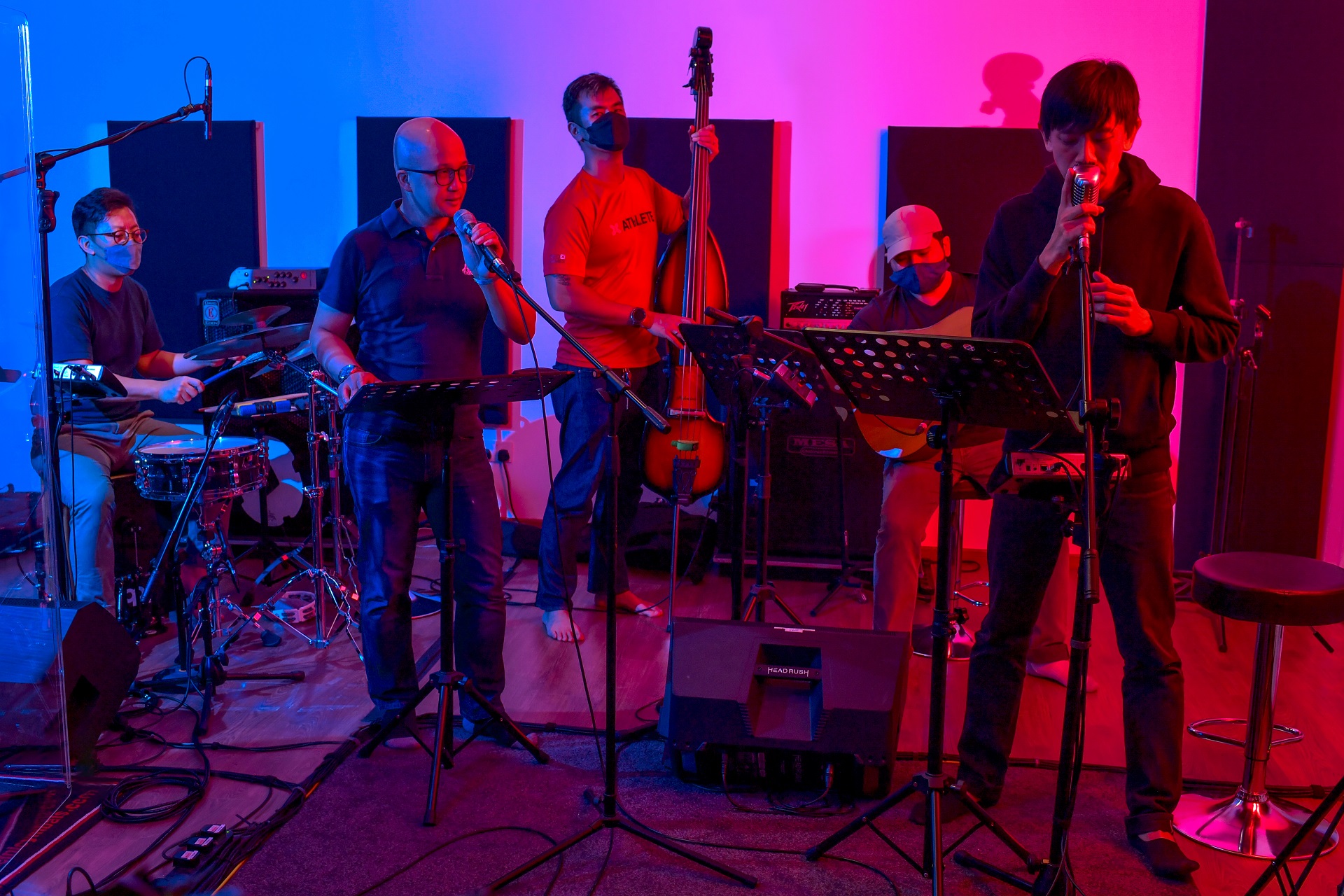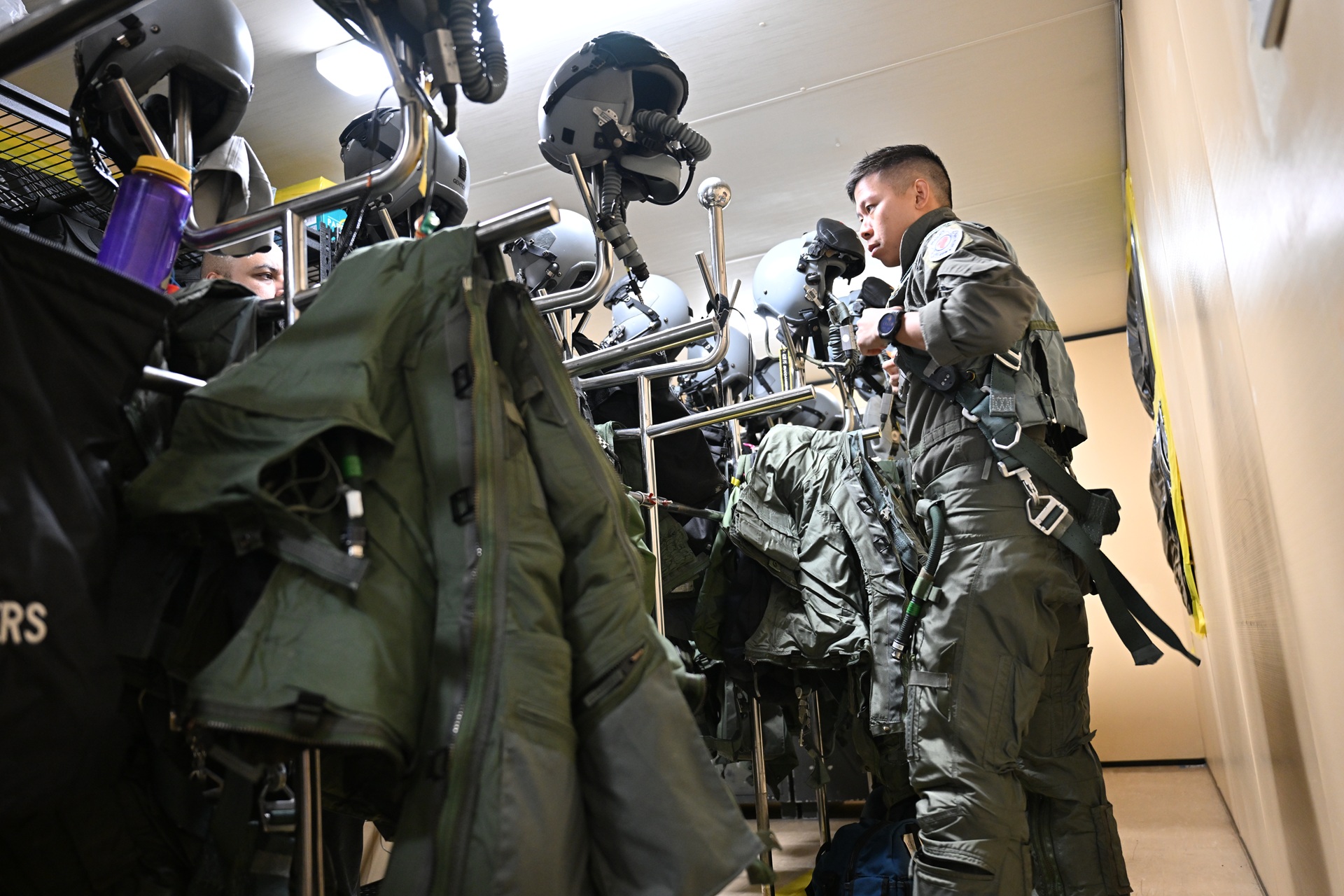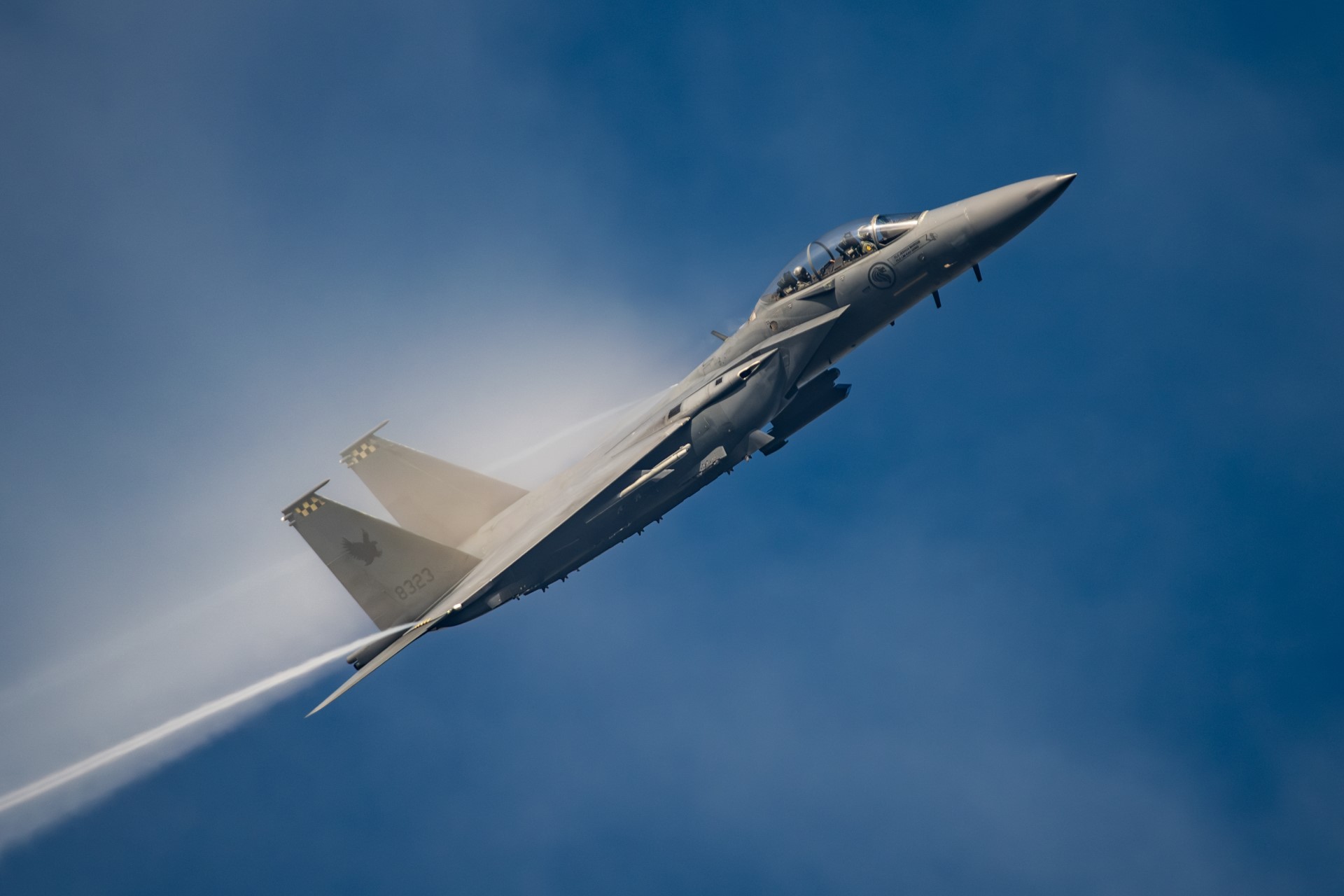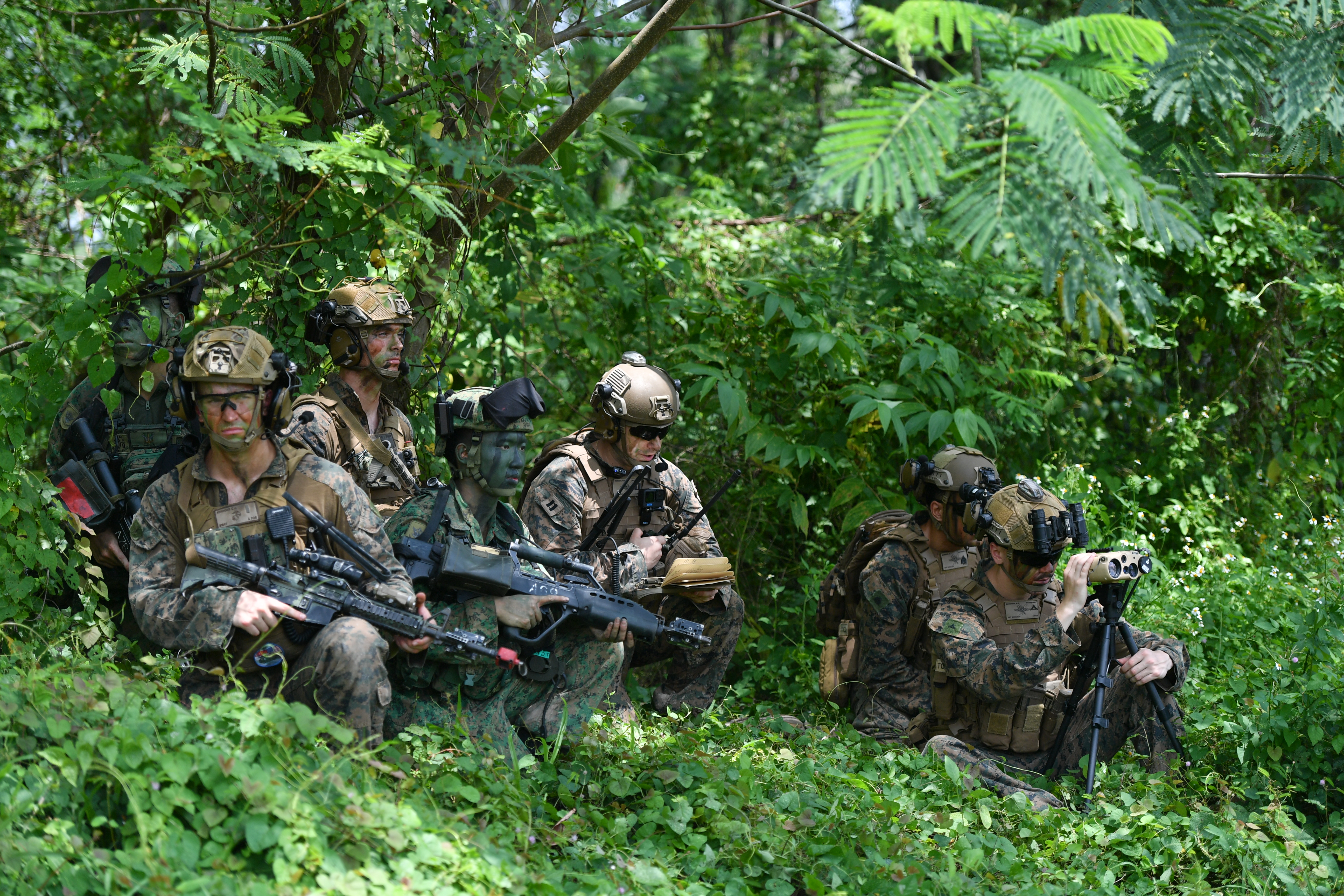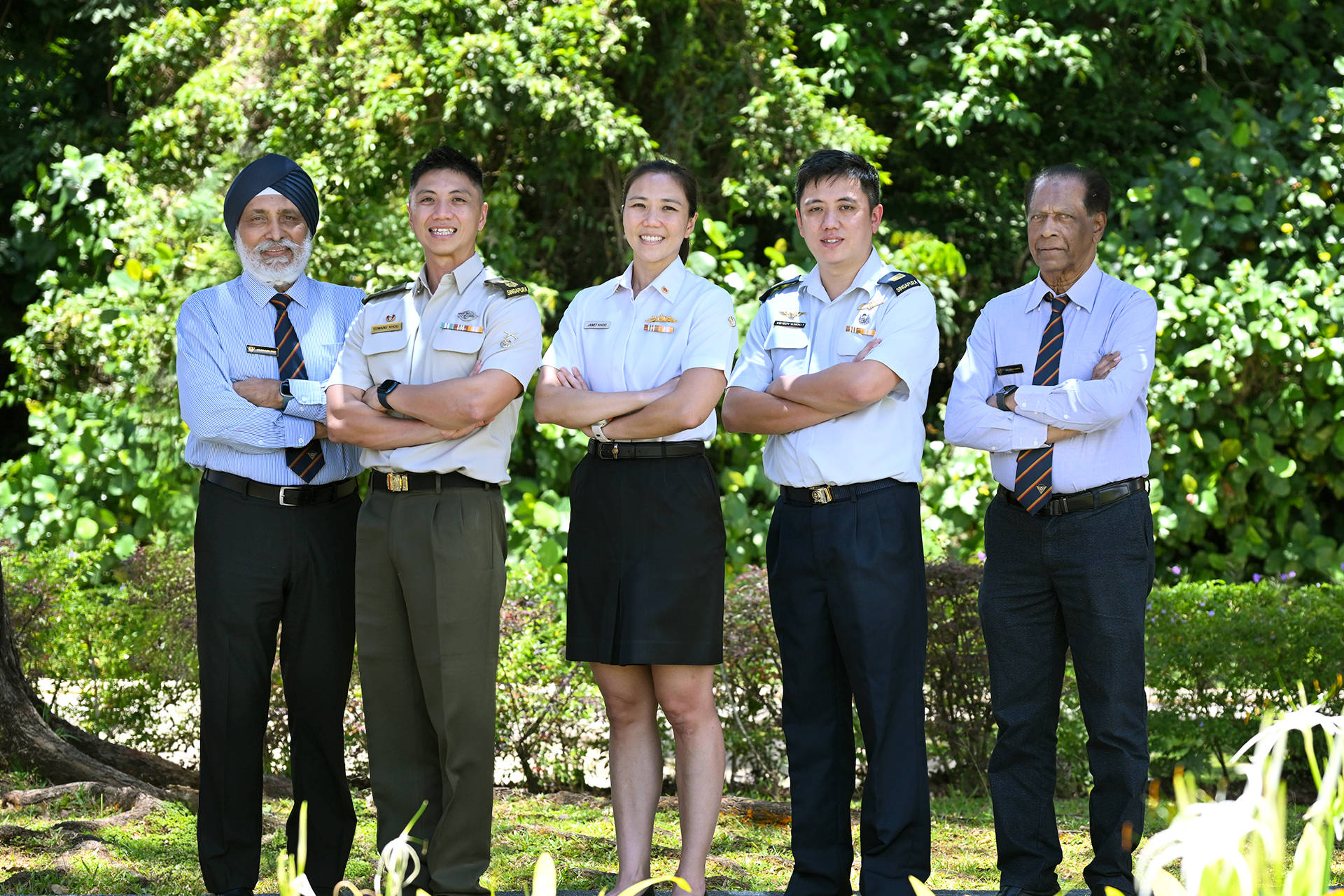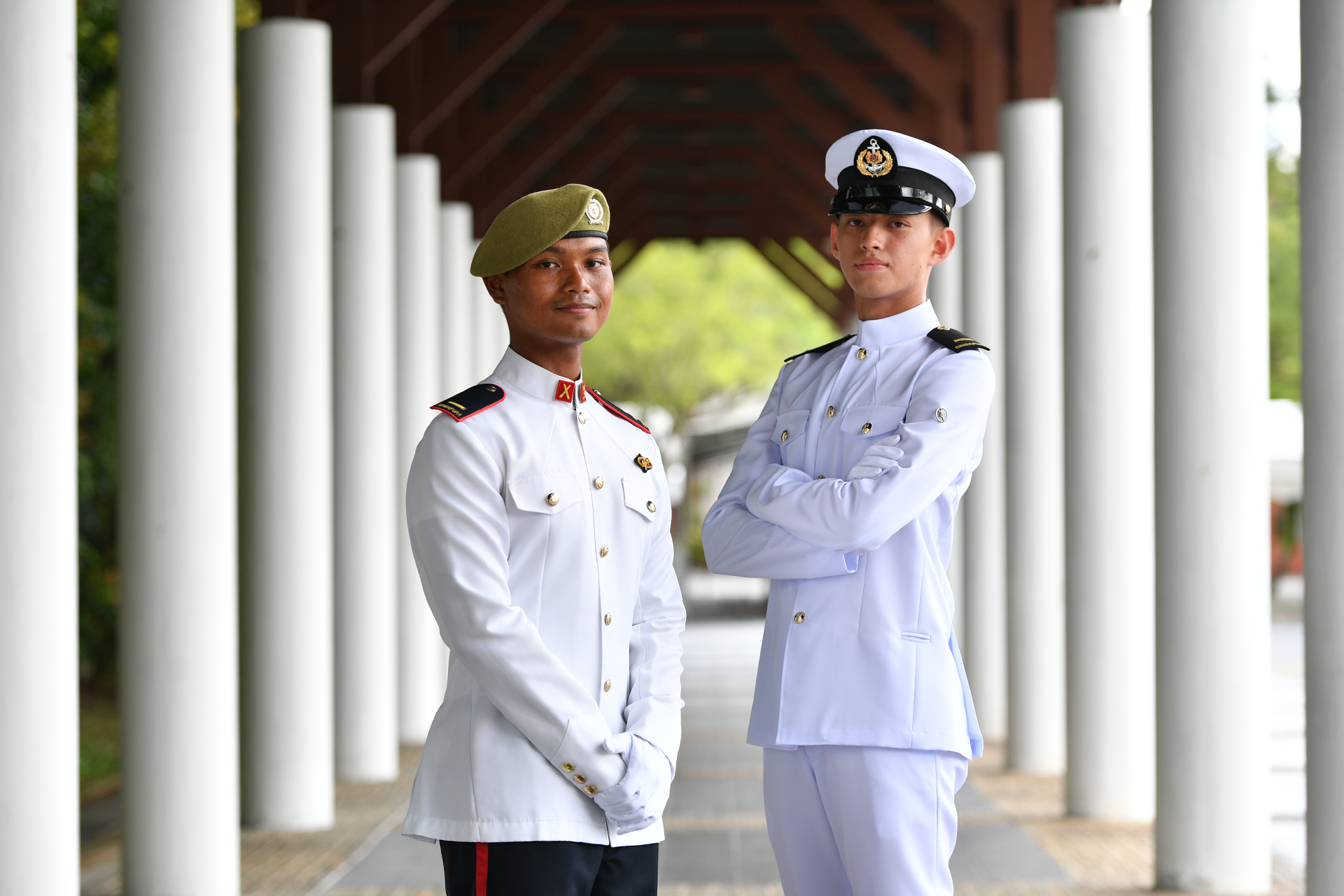GENERAL LEE – SINGAPORE'S HIGHEST RANKING BAND
//Story by BENITA TEO //Photos by CHUA SOON LYE & COURTESY OF INTERVIEWEES
How did Redhill get its name? Who was Radin Mas and why are so many places named after her? Why is Opium Hill an important part of Singapore's history?
Many of us may have forgotten these local myths and legends. Rock-and-roll band General Lee is hoping that through their music, Singaporeans will remember the stories of their childhood, and re-discover our country's rich culture and heritage.
Formed in 2013, the band is made up of lead singer 3rd Sergeant (3SG) (NS) Lin Jiahe, 40; guitarist 1SG (NS) Victor Chen, 41; drummer Corporal First Class (CFC) (NS) Lin Hanrong , 38, and bassist Major (MAJ) (NS) Isaac Tan, 40.
Having honed their craft in other bands, playing covers in pubs and bars, the members of General Lee came together to release their eponymous album of original music in 2016, singing about famous local landmarks in songs such as Redhill Remorse, The Ballad of Bukit Brown and Radin Mas Ayu.
PIONEER catches up with the band in the studio, where they are rehearsing for their upcoming Esplanade show, titled General Lee/Speaking: Singaporeana. This time, they have a fifth "instrument" – poet Lieutenant (LTA) (NS) Laremy Lee, 39, who will be adding a new dimension to their music with his spoken word performance.
Thanks for letting us crash your rehearsal! Tell us more about your upcoming live show!
3SG (NS) Lin: It's a music and spoken word performance that's part of Foreword, Esplanade's annual festival of spoken, narrated and musically interpreted words, stories and literary texts. We'll be performing songs from our album, accompanied by Laremy's poems, which were written specially for the show.
Your songs put a unique spin on the stories of our heritage and culture. Why did you choose this topic?
MAJ (NS) Tan: We often hear young Singaporeans say things like: "Ah, Singapore's history is so manufactured, we have no heritage, unlike other countries." But if you dig deeper, you'll find the heritage, culture, history and mythology that many of us overlook. And Jiahe does a brilliant job at writing about history, rather than frivolous stuff about girls, rock 'n' roll and drinking—
1SG (NS) Chen: —although we do have a song about girls, rock 'n' roll and drinking! (laughs)
It's not every day we see a performance that marries rock-and-roll and poetry.
3SG (NS) Lin: We wanted a cross-medium performance that is not commonly seen. We thought about working with a poet, and Laremy was the first person who came to mind.
All of us were from the same hall of residence at NUS (National University of Singapore)! We first worked with Laremy in 2020, when we made a video of The Ballad of Bukit Brown and Laremy wrote a poem that was a response to the song. We put it online and people loved it.
1SG (NS) Chen: This time, we've rearranged our music to suit the poetry better. We also have musicians accompanying us on instruments like the mandolin and banjo, which gives the performance an American folk music flavour.
One of the songs you'll be playing is Opium Hill, which recounts the iconic battle of Pasir Panjang and the heroism of LTA Adnan Saidi and the Malay Regiment's 1st Battalion. What was the inspiration behind this song and its complementary poem, Hung, by the legs, on a cherry tree?
1SG (NS) Chen: When I was researching for this song, I noticed that a lot of old American country songs were written about historic battles such as the Civil War.
Singapore also fought a number of battles during World War II (WWII), and Opium Hill (or Bukit Chandu) is the site of the battle that we read the most about in history textbooks. Such songs also tend to have a personality attached to them – in this case, LTA Adnan is the hero.
LTA (NS) Lee: While I was researching about the battle, the phrase "hung, by the legs, on a cherry tree" kept appearing. I'm always looking at duality. When the Japanese did this to LTA Adnan, it was to dishonour him for decimating their soldiers.
But at the same time, it has become a symbol of pride for us, because he is a son of our land who defended us. The same image (represented) honour and dishonour at the same time.
Did your experiences in National Service (NS) influence the writing of Opium Hill and Hung, by the legs, on a cherry tree?
LTA (NS) Lee: Definitely. Writing the poem made me recount my own experiences during military exercises when I was a Platoon Commander in 696th Battalion, Singapore Infantry Regiment (696 SIR).
I recall the anticipation, the adrenaline rush and the smell and cacophony of blank rounds being fired, and thinking: so this is some semblance of how people feel in wartime. Thinking back about my experience helped me channel some of these ideas and emotions into my writing.
3SG (NS) Lin: I was an Infantry Scout Commander in 754 SIR. I fondly recall a particular knoll in one of my training areas that gave me the inspiration for Opium Hill. The image of soldiers lying in wait in a defensive position on top of that knoll was what I envisioned the brave 42 probably saw and felt in that dire situation as they fought to defend their homeland.
MAJ (NS) Tan, you've been a ROVERS (Reservist on Voluntary Extended Reserve Service) since 2019 and you're currently the S3 of 737 Gds (737th Battalion, Singapore Guards). What gives you the motivation to keep serving?
MAJ (NS) Tan: I used to be an Officer Commanding (OC) in 745 Gds – a rather unwilling one. But my turning point was this one mission – I was exhausted and my men surrounded me and gave me water. Someone said: "Sir, if you peng (collapse) now, who will lead us?" To this day, that's what's kept me going, and I ended up seeing them through to the end of their ORNS (Operationally Ready NS) cycle.
It was also my wife's idea! When I asked her if I should continue to extend my service, she said to me, "If not you, then who?"
I feel a sense of duty towards the junior and senior commanders and all the men who rely on me, and I want to help them understand why they must defend this land. At the end of the day, as long as they can go out with good memories that they can share with their families, and build strong, long-term friendships outside of In-camp Training, I'm satisfied.
